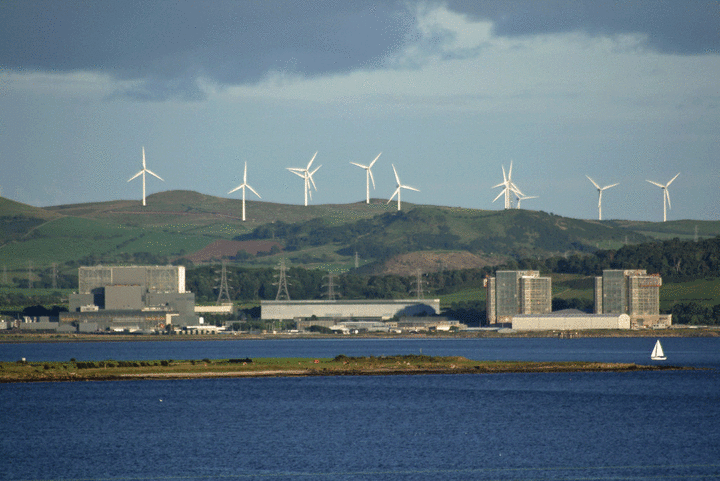Renewables ‘no-regrets insurance’ against nuclear gap
Report examines ways to fill potential shortfall in UK's low-carbon power pipeline
By George Smeeton
info@eciu.netShare
Increasing renewable energy capacity would serve as an insurance policy against a possible ‘nuclear gap’ in Britain’s low-carbon power pipeline caused by early closure of ageing reactors, a new report finds.

The report, Cracks in the System, by the Energy and Climate Intelligence Unit (ECIU) examines the effects of the UK’s existing nuclear power stations closing earlier than government expects. It finds that this would exacerbate the problems caused by cancellation of new nuclear stations. And it concludes that expanding renewable energy capacity, either through increasing development of offshore wind or via a combination of on- and offshore wind and solar, would fill the gap more cheaply than expanding gas generation, an option that would in any case bust legally-binding carbon targets.
Accelerating renewables rollout in this way alongside enhanced power system flexibility such as storage would be a ‘no-regrets’ option, the report argues.
Report author Dr Jonathan Marshall, ECIU head of analysis, said: “Although Government has reduced forecasts for the amount of nuclear capacity Britain needs in recent years, no assessment has yet considered the potential impact of the early closure of the country’s ageing fleet of reactors.
“If this happens it is unlikely that the lights will go out, but it could make hitting our carbon targets more challenging. Ministers need to decide how to prepare for this potential clean power gap therefore, and soon; accelerating renewables deployment is probably the best no-regrets short-term option, with consideration given to how to support new nuclear projects over the longer term.”
Recent decisions by Hitachi and Toshiba to halt new nuclear projects at Wylfa in Wales and Moorside in Cumbria respectively have created a shortfall between official projections of nuclear generating capacity and what the market appears set to deliver. The ECIU analysis considers this alongside the prospect of further shortfalls – prospects raised by the discovery of cracking in the graphite bricks around the core of nuclear reactors such as that which has closed Hunterston B Power Station in Ayrshire.
If cracks affect Britain’s other advanced gas-cooled reactors (AGRs), these plants may be forced into decommissioning early.
The impact of such early closures could have important implications for the UK’s carbon targets, suggested ECIU director Richard Black:
“Britain is already off-track on meeting the Fourth and Fifth Carbon Budgets, covering the periods 2023-27 and 2028-32 respectively, and the loss of another chunk of low-carbon power would make meeting these targets even more difficult,” he said.
“Cleaning up the power sector has done the bulk of the heavy lifting in Britain’s recent decarbonisation and, if the Government does sign a target for net zero emissions by 2050 into law, it will have to do more.
“With that in mind, it would economically pragmatic to accelerate decarbonisation in the near-term by building up capacity in low-cost renewables and flexibility mechanisms. If it turns out they’re not needed, all Ministers will have done is to accelerate decarbonisation which they say they need to do anyway; so this really is a no-regrets pathway. But it’s one where decisions are needed soon.”